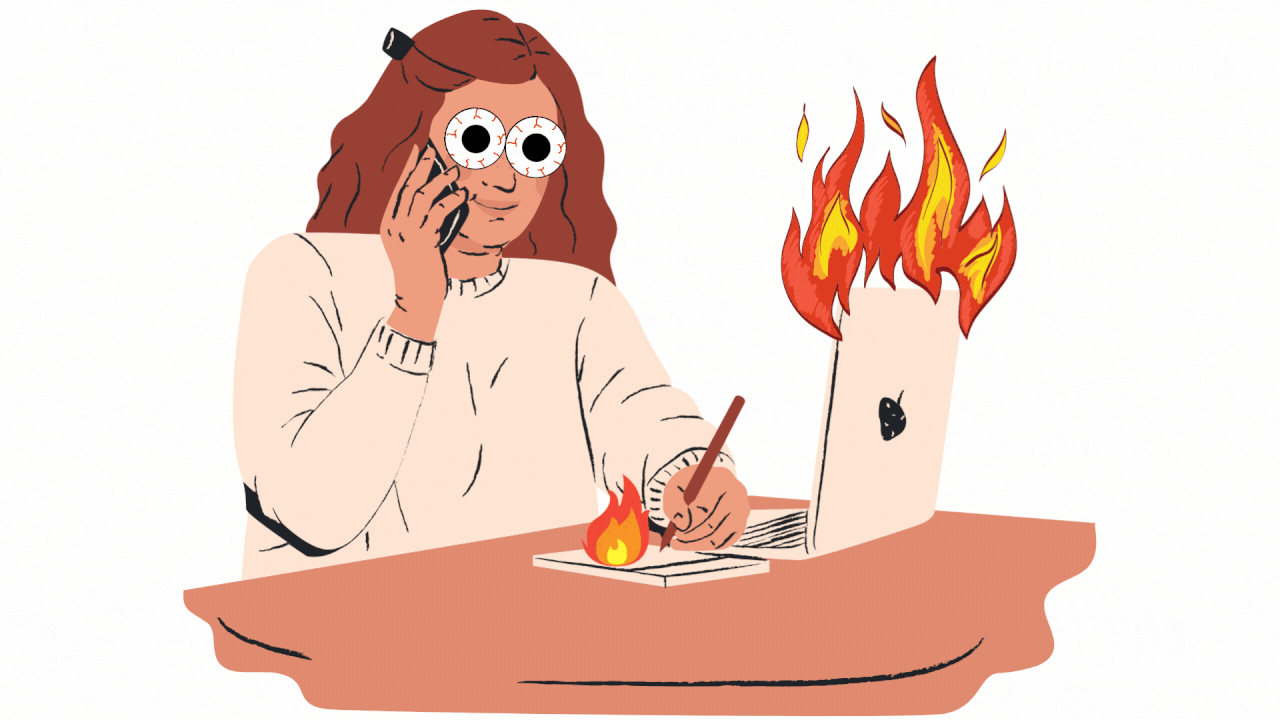3 Energizing Tips For Avoiding Burnout
Oooh, boy, we areTIRED. Exhausted. Over it all, and then some.

Adaptation is something humans are born with. In the wild, it can make the difference between life and death. While the stakes in the workplace may not be so high, or at least shouldn't be so high, adaptability in the workplace is an important component of success.
A constant state of flux and transition characterizes businesses today. This has never been more apparent than during the pandemic. Workers suddenly found themselves working from home, juggling multiple new programs and tools with little training. Workers who were able to adapt and thrive during this time made a significant contribution to their companies as innovators, leaders, and valuable assets.
Adaptability in the workplace goes beyond the ability to stand out in the crowd. It is about unlocking our full potential and not being constrained by our routine. We are able to expand our skill sets, abilities, and define our identities through change.
Adaptability in the workplace is not just a set of actions but an attitude. The actions are made possible by the attitude which you carry with yourself in every task and interaction you face throughout your day. Adaptive people feel free to look for solutions. They’re not stuck on imperfections or waiting for things to be just right before they get started.
Develops strong leadership skills
The more adaptable you are, the better suited you'll be for a leadership role. More adaptable leaders tend to show greater ability to motivate, inspire and lead teams, and more easily earn the respect of co-workers. They embrace change and encourage others to do the same. With adaptability skills, they can navigate unexpected situations without comprehensive instruction, allowing them to take charge.
Increases a team members’ valueRegardless of the industry you're in, it is common for changes to occur in the way your job is performed, as well as in the workplace atmosphere. Because of this, employers want to hire employees who can adapt to these changes. Being an adaptable employee means that you're able to handle new changes and challenges with ease.
An overall sense of happinessNot everybody at the workplace can cope up with the changes. Therefore, the better you're able to anticipate change and adapt to it, the happier and more at ease you'll be. Being adaptable means having a belief in yourself and your ability to pivot as needed. When you embrace change, you've essentially found a reason to be happy no matter the situation.
More equipped to handle workload pressuresThe more adaptable you become, the better you'll be able to handle adversity. This will also lead to a mind-set of resilience and endurance for the trial and error needed to get to better solutions.
More relevantAs the world continues to change, there will be constant evolution in the workforce. This may require the implementation of new systems, tools or business strategies, or changes in your original job description. As you become more adaptable, you will be better equipped to adjust to new changes, making you more valuable.
“When you are finished changing, you are finished”. - Benjamin Franklin
If you’ve been told you need to be more flexible, or you’re just feeling an internal desire to improve your or your team's adaptability in the workplace, there’s good news. While some of us are naturally more able to adapt, growth in this area is attainable for everyone. It might take a bit of practice and intentionality if it’s not your natural inclination. But you can learn it, and we can help.
Never stop asking questions
It’s hard to learn anything new when we think we know everything. Asking questions of co-workers, mentors, and bosses is not only an excellent way to learn more, but it will also be helpful to understand how you will challenge the old patterns and systems within an organization that may be slowing down progress.
Be OK with making a mistake or twoThough making a mistake can be disheartening, it will also provide you with great opportunities. You might learn a valuable lesson, find an opportunity to share knowledge or uncover a new solution. Change your mind-set when it comes to your mistakes. The better you are at accepting your mistakes, the more adaptable you'll be at managing the fallout.
Embrace the concept of "play"Playfulness is one of the ways that we build skills in adaptability. Think of ‘play’ as ‘trial and discovery’. It helps us quickly work through scenarios using creative thinking to find the best solutions. Bringing a playful approach to our work fuels our adaptability muscle by allowing us to look for new possibilities without undue pressure.
Observe and learn from your co-workersOne great way to learn adaptability is to observe how your co-workers embrace change. Consider the way they showcase their adaptability in certain situations and how you can apply those same concepts. It can also be beneficial to ask them for any tips they can provide in this area.
Adaptability in the workplace is a valuable soft skill that benefits your individual career and organization, while also giving you a renewed sense of optimism. The only thing constant in life is change, so why not embrace it? You will find over time that an ability to embrace change will spill over and benefit your personal as well as your professional life. Strong adaptability skills will make these changes feel less scary and empower you and your team to overcome any obstacle.

Oooh, boy, we areTIRED. Exhausted. Over it all, and then some.

I’ve been in sales my entire career. Almost 25 years of cold calling, appointment setting, airplanes, hotels, corporate lobbies, presentations,...

Remember about twelve years ago when every ad read like "I live to rise and grind! Coffee is my wife and we have two kids, Adderall and Empty...